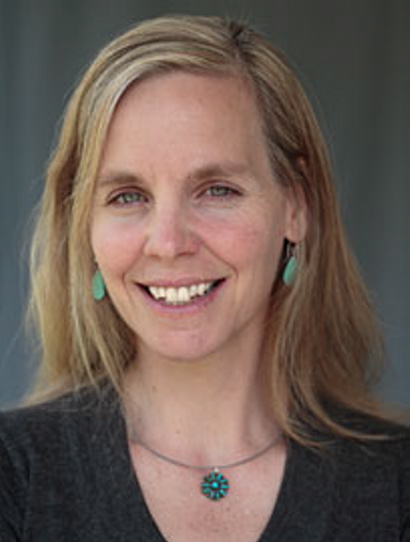FARMINGTON — As a mother and a scientist, Vermont author and educator Amy Seidl told visitors at the University of Maine at Farmington Monday that the reality of global warming is deeply unsettling. But it doesn’t have to mean the end of the world.
She said addressing climate change is all about fighting off the old ways and adapting to new conditions.
Stewardship of the planet means reducing reliance on fossil fuels and gases, but also means making changes in our personal worlds to develop “right relationships” with nature.
“The world is changing around us,” Seidl told the audience at Roberts Learning Center. “Basing our economy on fossil fuels is not sustainable and some day may be viewed as immoral.”
She said her positive, yet realistic position that the Earth can adapt and persist despite the inevitable effects of climate change should be part of the new conversation.
Monday’s lecture, part of UMF’s Earth Week observations, was titled “Finding Higher Ground: Adaptation in the Age of Warming,” taking the title from her first book published in 2008. She teaches at the University of Vermont.
Seidl said plants, insects, birds and mammals already are adapting both behaviorally and genetically. There are changes in our gardens, our back yards and in the woods, she said. Lilacs are blooming earlier. The winter wren arrives earlier.
Within ten years, one plant species in a drought-stricken area has evolved to fit its life cycle into the shorter growing season, she says in her book. Red squirrels are breeding earlier to take advantage of the food supplied by an earlier spring. Some birds are migrating shorter distances, or not at all, as their northern habitats become milder.
Reading from prepared notes as if reciting poetry, Seidl quoted Aristotle saying “How now shall we live?”
Adaptation does not mean capitulation, she said. It does not mean giving up or giving in to the “toxic trespass” of the modern age. People must resist those who would continue to pollute the planet just as abolitionists fought slavery and anti-apartheid activists fought for the people of South Africa.
“Climate justice takes time. Just look at how long racial justice is taking,” she said.
Seidl, the mother of two young daughters, said there are three key words to adapting to the reality of global warming: resistance, replacement and resilience. Severe storms over the past five years have brought people together to do “the work that matters” with solutions that include composting, recycling and buying locally grown foods, constructing buildings that can sustain high winds and homes that are above the high water mark.
The plants and animals around us show us how to increase our own capacity for resilience, she said. There must be adaptive strategies for local crops — even growing rice on land that is now too wet to grow anything else.
Climate change is real, she said, but it is not a nail in the human coffin. Society must wean itself from the old ways and learn to nourish the air, the water and natural life everywhere, not destroy it.
“We can not go back on climate change,” she said. “So mitigate we must, but adapt we better.”
Seidl also reached into her second book, “Early Spring: An Ecologist and Her Children Wake to a Warming World,” for answers to a child’s question: “Why do we keep doing this?”
Among those answers, she said, is looking for ways to adapt to new conditions while fighting the forces that continue searching for oil and gas as solutions.
Doug Harlow — 612-2367 dharlow@centralmaine.com Twitter: @Doug_Harlow
Send questions/comments to the editors.




Success. Please wait for the page to reload. If the page does not reload within 5 seconds, please refresh the page.
Enter your email and password to access comments.
Hi, to comment on stories you must . This profile is in addition to your subscription and website login.
Already have a commenting profile? .
Invalid username/password.
Please check your email to confirm and complete your registration.
Only subscribers are eligible to post comments. Please subscribe or login first for digital access. Here’s why.
Use the form below to reset your password. When you've submitted your account email, we will send an email with a reset code.